Microscopic Tardigrades Are Also Called Water Bears Because Of Their Tiny Lil Bear Legs And Tiny Lil

Microscopic tardigrades are also called water bears because of their tiny lil bear legs and tiny lil bear-like movements
More Posts from Llamaslikesciencetoo and Others
70 Ask-Questions for Science people... because Science
What’s your major/field?
What made you choose your major/field?
What’s your favorite thing to do in the lab?
What’s the most interesting lab story?
What’s your favorite class?
Which professors do you ship together?
Annoying things your labmates do?
What are your thoughts on animal testing?
Any chemical burns or lab related accidents?
On a scale from 1 to 10 how sensitive are your lab scales?
Who’s your favorite scientist?
Who’s your least favorite scientist?
Favorite female scientists?
Do you do field work? What kind?
Ever tasted an experiment?
What are your typical daydreams about?
How often do you say “for science”?
Do you think about murdering someone with science?
Ever used your scientific knowledge for “bad” stuff?
Whats the most “evil scientist” thing you can think of?
If you had infinite funding, what would your research be about?
What is your favorite scientific theory?
Is a scientific mind attractive to you?
What is your title?
What is the role of technology in your field?
What do you enjoy most about doing science?
What do you enjoy least about doing science?
What is your tolerance on stupidity?
What are your strengths in your field of study?
Your weaknesses?
Do you have a bit of a god complex?
Why are biology majors so….you know..
What motivates you?
Do you like being supervised?
Describe your analytic abilities.
How would your friends describe you?
How would your professors describe you?
Is math a little bit too mathy for you?
Do you code? if yes, how many languages?
Thoughts on AI and robots?
What’s your favorite science blog?
Philosophical views on humanity and nature?
What are your short term and long term career goals?
Do you understand general relativity?
Favorite Dinosaur? Fossil? whatever…
How many bones can you name in medical terms?
How many muscles can you name in medical terms?
What’s your favorite molecule?
Do you like proofs or cold hard Mathematics?
What’s your favorite element?
Favorite show?
Favorite scientific fictional character?
What’s your favorite micro organism?
Have you ever held an organ in your hands?
Lab coats?
What about … lab goats?
White latex gloves or blue ones?
What’s the most dangerous experiment you’ve done in the lab?
What was the first time you got caught doing science?
What was you’r parent’s reaction when you told them you’re a scientist?
Except for lab coats in the bedroom what other kinks do you have?
What would you do a TED talk on?
Are you creative, artistic?
Do you have an attractive professor you can’t pay attention to?
What’s your favorite mineral?
What scientific books would you recommend?
Thoughts on spectral analysis?
Any interesting stories from the lab?
Ever did or thought about doing it or someone in the lab?
How much science is too much science?
Compiled by: rudescience

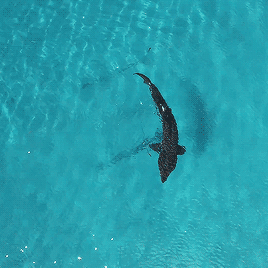
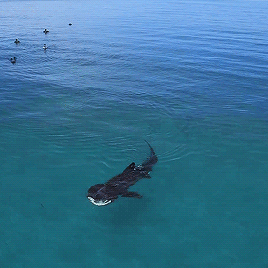
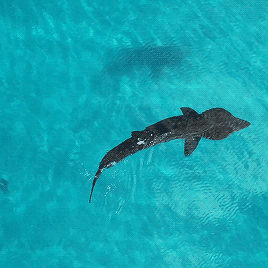


The Greenland shark, Somniosus microcephalus, is a member of the “sleeper shark” family. It moves very slowly around the deep ocean.
They grow to enormous sizes – in some cases more than 5 metres (16 feet) long – and live in very cold waters in the far north Atlantic, sometimes at the surface but often as deep as 1,800 metres (1.1 miles). They cruise along at 0.74 metres per second, or about three-quarters of a mile an hour.
It was already known that they can live for more than 200 years, but new research has shown that is literally only half the story.
When the oldest shark researchers studied was born (the Greenland shark gives birth to live young, not eggs), the Pilgrims had only recently settled in Massachusetts. Europe’s Thirty-Year War was in its infancy. James I sat on the throne of England. It lived through the English Civil War, the Great Plague and Fire of London, the American Revolution, the Napoleonic Wars, both world wars, and the entire nine-season run of Seinfeld.
Continue reading.
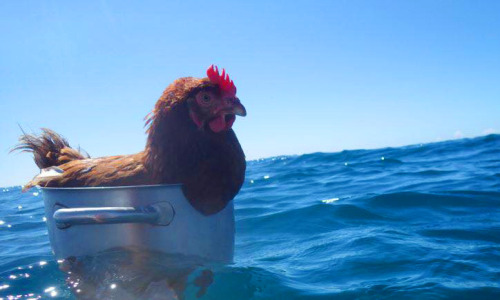
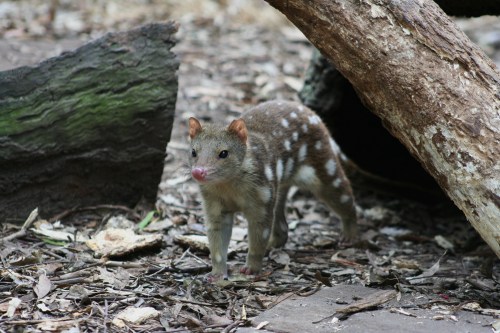
Quoll Returns to the Australian Mainland After 50 Years
On March 1st, Fourteen eastern quolls were released into Australia’s mainland to rebuild their population because of a team’s effort from Australian National University. Since the 1770′s, quoll numbers have been declining due to many dangers such as habitat loss and predators that include foxes, wild dogs, and cats.
The quoll is carnivorous and feeds on smaller mammals, small birds, lizards, and insects. Until now, it has inhabited inland parts of Australia. There are six current species(pictured is the tiger quoll). The larger of which live longer than the smaller, with an average life span of two to five years.
So, whats the point of this translocation? Well, quolls are important to the functioning of the mainland ecosystem where they regulate the prey species. The released quolls will have radio tracking collars to be monitored.
Fact about the quoll: Male and female quolls only meet for mating, and male den territories often overlap female territories. However, they have communal toilets where they may have up to 100 droppings in them.
Photo by: joshua cunningham via Flickr
You know you grew up on Steve Irwin when you see a photo of a crocodile and think, “Wow. Just beautiful.”

It’s been years since I first learned about it and I still can’t get over the fuckin fact that box jellyfish have EYES. JELLYFISH WITH EYES. THIS JELLYFISH IS LOOKING AT YOU. THE THINGS THAT LOOK LIKE EYES ARE ITS EYES. IT HAS THEM. A JELLYFISH.
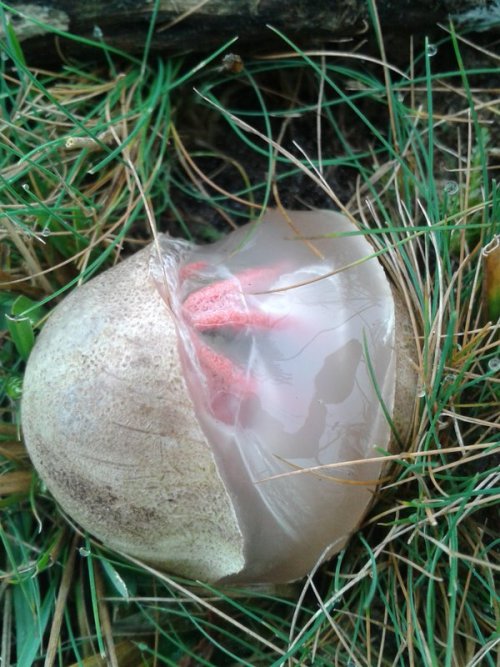
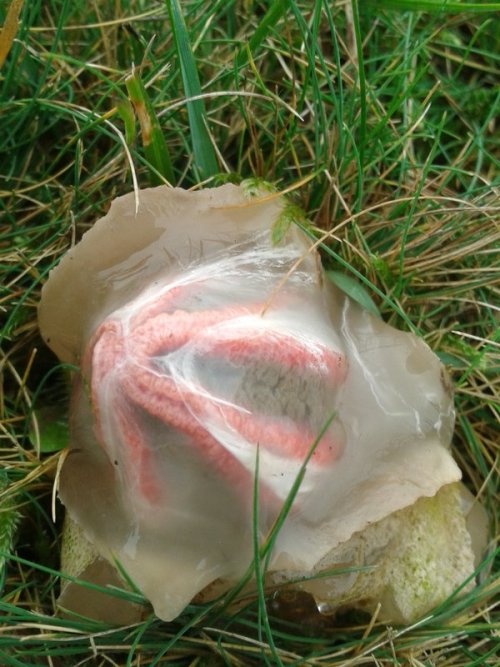
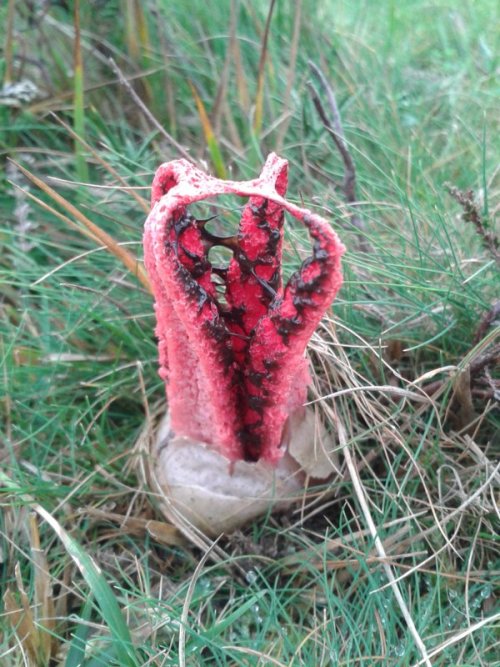
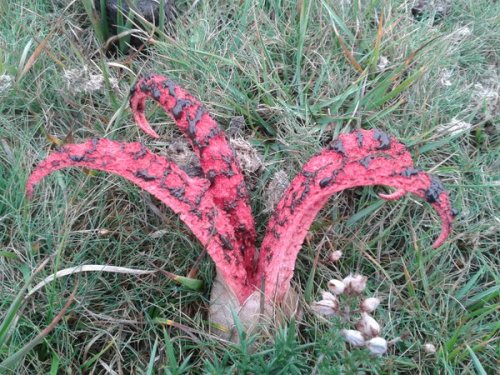
(image credit to Dan Hoare on twitter)
I ONLY JUST LEARNED ABOUT THE EXISTENCE OF THIS MUSHROOM????? WHICH ERUPTS FROM AN EGG BEFORE UNCURLING HELLISH ARMS, EXPOSING ITS STICKY MASS OF SPORES TO BE SPREAD BY FLIES ATTRACTED BY THE SCENT OF ROTTING FLESH???
Admittedly, I am easily won over by all organisms that attract flies with the scent of rotting flesh. But the octopus stinkhorn (Clathrus archeri) also has tentacles, a freaky egg stage, and blackish goop, so it’s my favorite now.
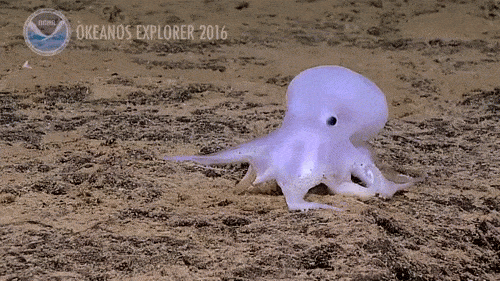

The Okeanos Explorer has discovered a very cute octopus at a depth of 4,290 metres.
This is the deepest an octopus of this particular sub order of octopus has ever been seen.
The National Oceanic and Atmospheric Administration noted this is a completely unsubscribed species and perhaps not belonging to any specific genus. Highlighting how little we still know about the creatures in the depths of our oceans.
(Ocean Explorer)
In this short video, augmented reality startup company Magic Leap used their cool technology to make 3D magic happen in a school gym.
-
 afewthingshereandthereblog reblogged this · 3 months ago
afewthingshereandthereblog reblogged this · 3 months ago -
 rei-the-head-shaker liked this · 3 months ago
rei-the-head-shaker liked this · 3 months ago -
 emily84 reblogged this · 3 months ago
emily84 reblogged this · 3 months ago -
 tigerlilypurr liked this · 5 months ago
tigerlilypurr liked this · 5 months ago -
 merrimorp liked this · 9 months ago
merrimorp liked this · 9 months ago -
 bornfreak reblogged this · 9 months ago
bornfreak reblogged this · 9 months ago -
 illdispo liked this · 9 months ago
illdispo liked this · 9 months ago -
 nuttytaconightmare liked this · 11 months ago
nuttytaconightmare liked this · 11 months ago -
 chessdesalls liked this · 1 year ago
chessdesalls liked this · 1 year ago -
 hawpocasworl liked this · 1 year ago
hawpocasworl liked this · 1 year ago -
 lauraatulsa reblogged this · 2 years ago
lauraatulsa reblogged this · 2 years ago -
 lauraatulsa liked this · 2 years ago
lauraatulsa liked this · 2 years ago -
 jadeseadragon liked this · 2 years ago
jadeseadragon liked this · 2 years ago -
 spursgreatestfan liked this · 2 years ago
spursgreatestfan liked this · 2 years ago -
 omgsevereengineerbouquet reblogged this · 2 years ago
omgsevereengineerbouquet reblogged this · 2 years ago -
 wildernestt reblogged this · 2 years ago
wildernestt reblogged this · 2 years ago -
 jnssq reblogged this · 3 years ago
jnssq reblogged this · 3 years ago -
 wildernestt liked this · 3 years ago
wildernestt liked this · 3 years ago -
 reunionandthen liked this · 3 years ago
reunionandthen liked this · 3 years ago -
 megaxard reblogged this · 3 years ago
megaxard reblogged this · 3 years ago -
 keeping-i reblogged this · 3 years ago
keeping-i reblogged this · 3 years ago -
 zomb0i liked this · 3 years ago
zomb0i liked this · 3 years ago -
 apema35 reblogged this · 3 years ago
apema35 reblogged this · 3 years ago -
 apema35 liked this · 3 years ago
apema35 liked this · 3 years ago -
 bhaalin liked this · 3 years ago
bhaalin liked this · 3 years ago -
 dogpatchphotography liked this · 3 years ago
dogpatchphotography liked this · 3 years ago -
 milkywayrollercoaster reblogged this · 3 years ago
milkywayrollercoaster reblogged this · 3 years ago -
 fortheusers17 liked this · 3 years ago
fortheusers17 liked this · 3 years ago -
 theworstpaladin liked this · 3 years ago
theworstpaladin liked this · 3 years ago -
 southrnbird liked this · 3 years ago
southrnbird liked this · 3 years ago -
 keerabug reblogged this · 3 years ago
keerabug reblogged this · 3 years ago -
 keeraanye liked this · 3 years ago
keeraanye liked this · 3 years ago -
 thoughtsatthewitchinghour reblogged this · 3 years ago
thoughtsatthewitchinghour reblogged this · 3 years ago
Mainly interested in ecology, but also the entirety of science.
179 posts